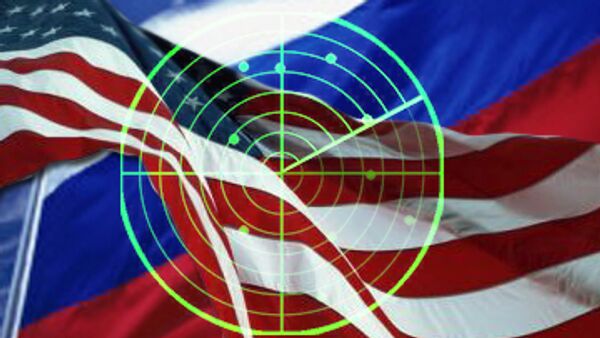MOSCOW, September 17 (RIA Novosti) - A former senior CIA analyst said on Thursday that Russian cooperation on missile defense in Europe was possible now Washington has scrapped plans for a missile shield in Central Europe.
U.S. President Barack Obama announced on Thursday that the United States could best defend itself and its allies by utilizing proven technology rather than pursuing the previous administrations missile defense strategy.
Although Washington said the shield was designed to guard against attacks from "rogue states" such as Iran, Moscow consistently objected to the plans as a threat to its national security.
Douglas Paal, vice-president at the Carnegie Endowment for International Peace, said in an interview with RIA Novosti that the United States hoped the easing of Russia's concerns over missile defense would bring greater cooperation in dealing with the nuclear threat from Iran.
"We would like Russia to take a stronger position in view of the Iranian nuclear program," he said. "Russia has been very unhappy with the Polish and Czech proposed facilities and we thought if we could arrange a tradeoff where Russia would support stronger sanctions in the event of a failure in negotiations with Iran, we would not have to worry about a threat from Iran with nuclear-armed missiles."
The U.S. president said on Thursday that while Iran remained the focus of U.S. efforts, new information had indicated that the Islamic Republic's short and medium range missiles were a greater threat than its long-range missiles.
Paal, who served on the National Security Council under Ronald Reagan and George W. Bush, said that having U.S. Navy vessels in the region could make cooperation with Russia possible in regard to a new ABM agreement, adding that Russian radar within Russia and in former Soviet republics would be sufficient to deal with a missile threat from Iran if one should develop.
"In the near term, we really need to worry about nuclear missiles because the only reason to have a missile program is to carry a weapon of mass destruction. If we can get to the heart of the weapons of mass destruction issue by getting Iran to back down on its nuclear weapons program, then the need for the missile program becomes much, much less," Paal said.
Defense Secretary Robert Gates said that the current threat from Iran required a new approach and that Washington would use Aegis ships equipped with interceptors to protect its European allies and U.S. troops.
"We have now the opportunity to deploy new censors and interceptors in northern and southern Europe that near term can provide missile defense coverage against more immediate threats from Iran or others," he said.
The Pentagon chief also said that a second phase of missile defense could see land-based systems deployed in Eastern Europe from 2015.


